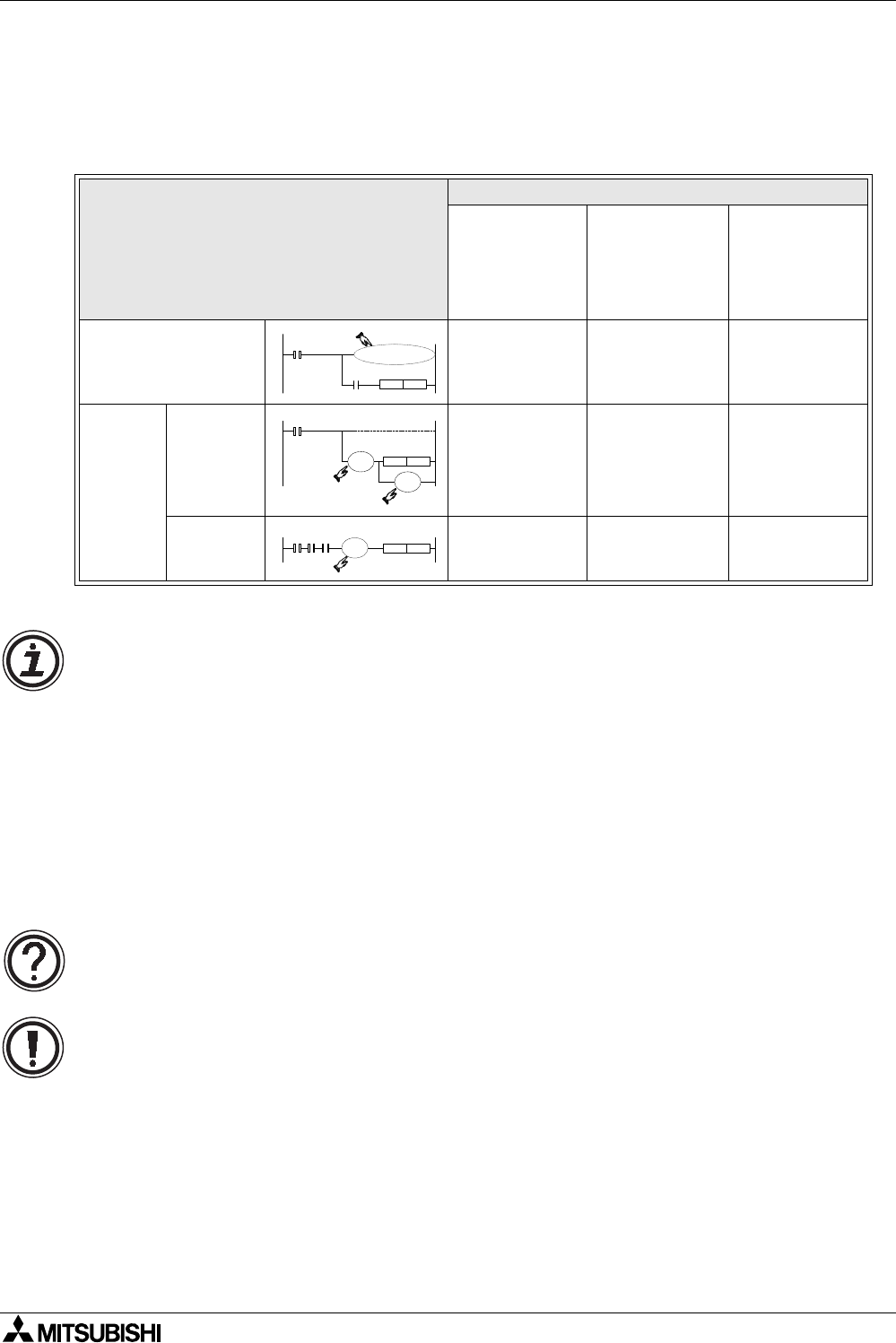
FX Series Programmable Controllers STL Programming 3
3-10
3.6 Restrictions Of Some Instructions When Used With STL
Although STL can operate with most basic and applied instructions there are a few exceptions.
As a general rule STL and MC-MCR programming formats should not be combined. Other
instruction restrictions are listed in the table below.
Restrictions on using applied instructions
Operational State
Basic Instructions
LD, LDI, AND,
ANI, OR,ORI,
NOP, OUT,
SET, RST,
PLS,PLF
ANB, ORB,
MPS,MRD,
MPP
MC, MCR
Initial and general
states
✔✔✗
Branch-
ing and
merging
states
Output
processing
✔✔✗
Transfer
processing
✔✗ ✗
STL
S**SET
STL
S**SET
STL
STL
STL
S**SET
• Most applied instructions can be used within STL programs. Attention must be paid to
the way STL isolates each non-active step. It is recommended that when applied
instructions are used their operation is completed before the active STL step transfers to
the next step.
Other restrictions are as follows:
- FOR - NEXT structures can not contain STL program blocks.
- Subroutines and interrupts can not contain STL program blocks.
- STL program blocks can not be written after an FEND instruction.
- FOR - NEXT instructions are allowed within an STL program with a nesting of up to 4
levels.
For more details please see the operational compatibility listed in the two tables on
pages 7-12,7-13.
Using ‘jump’ operations with STL
• Although it is possible to use the program jump operations (CJ instruction) within STL
program flows, this causes additional and often unnecessary program flow
complications. To ensure easy maintenance and quick error finding it is recommended
that users do not write jump instructions into their STL programs.


















